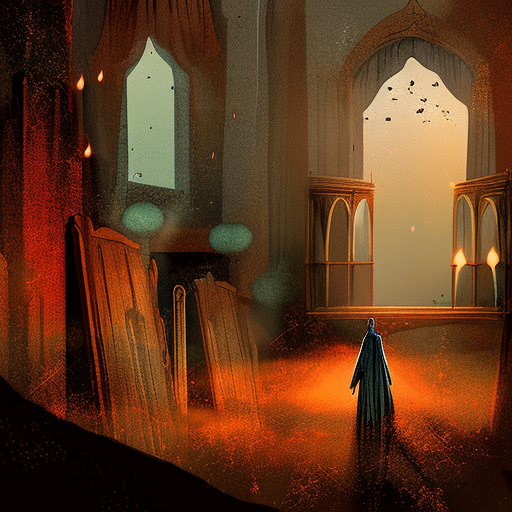One-Line Summary:
“We Have Always Lived in the Castle” is a captivating gothic novel that explores themes of isolation, family secrets, and the power of superstition through the eyes of an unreliable narrator.
The Blackwood Family: A Tale of Isolation
In “We Have Always Lived in the Castle,” author Shirley Jackson introduces readers to the peculiar Blackwood family, consisting of the remaining members, 18-year-old Mary Katherine “Merricat” Blackwood, her older sister Constance, and their ailing Uncle Julian. The Blackwoods live in seclusion in their grand family estate, cut off from the neighboring village due to a tragic event that occurred six years prior. The family’s isolation is further intensified by the townspeople’s suspicion and fear of them, stemming from the mysterious deaths of several family members.
Merricat, the story’s narrator, is an eccentric and unreliable protagonist who copes with the outside world through rituals and superstitions. She ventures into the village only once a week to buy groceries, enduring the taunts and hostility of the villagers. Constance, on the other hand, rarely leaves the house, haunted by the past and burdened with guilt. Uncle Julian, confined to a wheelchair, obsessively documents the details of the fateful day that changed their lives forever.
Family Secrets and Unraveling Truths
As the story unfolds, it becomes evident that the Blackwood family is plagued by secrets and hidden truths. The mysterious poisoning of the family members years ago continues to cast a long shadow over their lives. The arrival of their estranged cousin, Charles, further disrupts the delicate balance within the household. Charles, motivated by greed, attempts to exploit the family’s wealth and manipulate Constance into marrying him.
Merricat, fiercely protective of her sister and their way of life, resorts to desperate measures to preserve their isolation and keep their secrets buried. Her actions become increasingly erratic and ominous, blurring the line between reality and her own distorted perception of the world. As tensions rise and the truth threatens to unravel, the Blackwood family must confront their past and face the consequences of their actions.
The Power of Superstition and the Fragility of Sanity
“We Have Always Lived in the Castle” delves into the themes of superstition and the fragility of sanity. Merricat’s rituals and beliefs serve as a coping mechanism, shielding her from the harsh realities of the outside world. Her reliance on magic and talismans reflects her desire for control and protection. However, as the story progresses, it becomes clear that Merricat’s superstitions are not enough to shield her from the darkness lurking within her own family.
Jackson masterfully explores the boundaries between sanity and madness, blurring the line between the supernatural and the psychological. The novel raises questions about the nature of evil, the power of belief, and the lengths one will go to protect what they hold dear.
Key Takeaways:
- Isolation can both protect and harm individuals, as seen through the Blackwood family’s seclusion.
- Family secrets have a way of resurfacing, and the consequences can be devastating.
- Superstitions and rituals can provide a sense of control and comfort, but they may not be enough to shield one from the harsh realities of life.
“I would have to be careful, very careful, not to tell anyone what had happened, not to even think about what had happened; it was the only way to keep the world from finding out what a terrible thing I had done.” – Shirley Jackson, We Have Always Lived in the Castle
In conclusion, “We Have Always Lived in the Castle” is a haunting and atmospheric novel that explores themes of isolation, family secrets, and the power of superstition. Through the eyes of an unreliable narrator, Shirley Jackson crafts a chilling tale that lingers in the reader’s mind, questioning the boundaries between sanity and madness.












